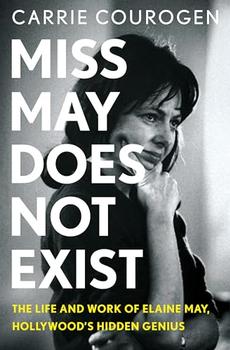Book Club Discussion Questions
Want to participate in our book club? Join BookBrowse and get free books to discuss!
Please be aware that this discussion guide will contain spoilers!
-
What made you choose to read Miss May Does Not Exist? What drew you to the subject, and what made you suggest it to the group for discussion?
-
If you had a perception of Elaine May before reading the book, how did reading the book change it? If you were unfamiliar with her before reading, what were your first impressions of her? How did those change as the book progressed?
-
Describe Elaine May's upbringing and earliest working years in the 1950s. How does it compare to other prominent entertainers of her time? Were there any details that surprised you? Why or why not?
-
Elaine May found near-overnight success at a young age, but not without personal sacrifice, and formed her own evasive response to the attention. What do you make of her reaction? How would you have handled that scenario?
-
What did you think about the way Mike Nichols, and his close but complicated relationship with Elaine May, was portrayed? Did anything about their dynamic surprise you? If so, what? Did you find any similarity in any relationships you've had in your life?
-
Courogen notes each instance in which Elaine May broke rules, ignored norms, or behaved chaotically. Do you believe the consequences she faced for her actions were warranted? Why or why not, and, if so, can you cite any instances in particular?
-
How do you think the cultural climate of the 1960s and 1970s affected May's professional trajectory?
-
May has had many professional identities over the arc of her career. Was there a
specific era you found most compelling? Share a passage or example to support your choice and discuss why.
-
What was the effect of reading about May's multiple setbacks and failures? What impact did they have on her? Did her response to her failures teach you anything?
-
Courogen posits that May habitually bends the truth; why do you think that is? How much can we trust someone who is an unreliable narrator of their own lives?
-
May has kept quiet for decades, despite being an influential player in the history of American entertainment. Why would someone want to keep the truth buried? Is it fair for a historical figure to withhold information about the movements in which they were involved from the public?
-
May has kept quiet for decades, despite being an influential player in the history of
American entertainment. Why would someone want to keep the truth buried? Is it fair for a historical figure to withhold information about the movements in which they were involved from the public?
-
The recent resurgence of interest in, and defense of, May fits in a larger trend of
reexamining women and other marginalized people from history who were mistreated,
misremembered, or not given enough credit for their work. How do you think we can learn from these stories to course correct in the present, and recognize people for their
accomplishments in real time rather than in retrospect?
-
Did you learn anything from this book? What was unexpected?
-
What do you think the author wanted you to take away from this book?
Unless otherwise stated, this discussion guide is reprinted with the permission of St. Martin's Press. Any page references refer to a USA edition of the book, usually the trade paperback version, and may vary in other editions.
